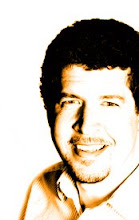Simple truth: networking is the most effective way to land a job. In fact, sixty percent of jobs are found through networking
Sadly, most people would rather blindly send their resume to a complete stranger than introduce themselves to someone who may be the key to landing their next job.
The killer is, networking isn't that hard. All it takes is a slight attitude change and a few easy steps.
First for the attitude change: Don't think of it as "networking" (whatever the hell that really means). You're meeting new people. Making friends. It's that simple.
The best way to do that? Go to industry events.
The easiest people to approach are the ones in charge of putting on the event. For instance, you can easily pick out board members at AAF or AIGA or IABC events by their name tags (they usually have plastic badges, while everyone else has paper tags). Start with them. Part of their job is to talk to new people and to introduce people to each other. Take advantage of that. If one of them doesn't do that for you, move on to another. Really want their attention? Ask about membership. That always kicks them into gear.
Next, look for people who, like you, appear to be there by themselves. They'll be happy to have someone come talk to them. Then work together and approach other individuals or small groups. After awhile, you'll have your own group going. Be welcoming to anyone who approaches or is near you. After awhile, break off from that group and start over. Later in the event go back around and re-engage with the people you met earlier.
Also, this may sound obvious, but talk to the person standing next to you. In line. At the bar. In the middle of the room. (But not in the bathroom. That's just creepy.)
Okay, that's great. But what do I talk to them about?
Them.
Ask if they are are involved in the organization; how they got involved; where they work;
did they enjoy the speaker/event/food; did they see the game last night; how long have they lived in the city; what made them move here; whatever. Just get a conversation going. The more you try it, the better you'll get at it.
Okay, now I've introduced myself to people. How do I get them to remember me?
Clearly introduce yourself at the beginning AND the end of your conversation. Hand them a business card (make your own). It will ensure they know your name and can remember it later. Also, ask for their card. If they don't have one, jot down their name on a piece of paper you have stashed in your pocket (along with a pen). You can always look them up later on LinkedIn or Facebook for contact information. AND make a point of bumping it to them again later at the event. No need for a long conversation. Just a "Hi, nice to see you again." This will again help them remember you later.
Then follow up. Send an e-mail the next day telling them it was nice meeting them (it takes several contacts for people to remember you). Make sure to reference part of your conversation with them to jog their memory.
A few days after that, follow up on LinkedIn or Facebook letting them know you would like to connect with them. This will be your fourth interaction. There's a good chance they will now remember you the next time you meet.
Continue going to events. Reconnect with the people you met before. After a while, they will "know" you and introduce you to other people.
I've tried all that, but I'm not having success. Now what?
Stick to it. Networking is about regular contact -- over the long term. To be effective, you have to keep at it. I can't tell you how many people I've met at one or two events and then never seen again. I can't tell you because I've forgotten them. They didn't stick at it long enough to develop a relationship or make a lasting impression. That takes time. And persistence.
But what about asking about job openings? You've said nothing about that.
There's a reason for that. If you ask about a job upfront, then you are not developing a relationship. A relationship has to be equal give and take. You are trying to start the relationship by taking. That never works. And the person will quickly duck out of the conversation.
It's okay to let them know you are job hunting, but don't ask them for something. It's all about timing. It's like meeting someone you are attracted to and asking him/her if they are looking to get married. How fast do you think that person will run away?
You can ask about job openings after you've connected again. People are much more likely to be receptive and helpful if they feel they know you.
After all, friends are all about helping friends.




